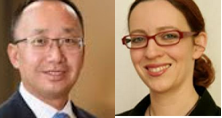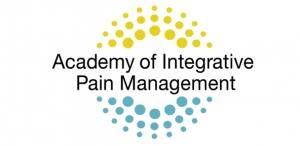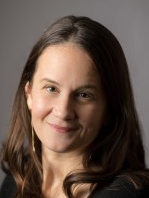National Cancer Institute-SIO partnership promotes integrative oncology globally
December 12, 2017
 by John Weeks, Publisher/Editor of The Integrator Blog News and Reports Editor’s note: This analysis article is not edited and the authors are solely responsible for the content. The views and opinions expressed in this article are those of the authors and do not necessarily reflect the official policy or position of Integrative Practitioner. A partnership between the Society for Integrative Oncology (SIO) and the National Cancer Institute has led to the publication of a recent 16-paper, open access volume. The special issue of the Journal of the National Cancer Institute Monographs, entitled Advancing the Global Impact of Integrative Oncology, broadly promotes the integrative model as the optimal standard of treatment. FON Therapeutics’ integrative oncology consultant Glenn Sabin, a former SIO board member as well as a cancer survivor, provides background on the SIO in an excellent overview of the SIO-NCI collaboration here. The Monograph highlights include, for instance:
by John Weeks, Publisher/Editor of The Integrator Blog News and Reports Editor’s note: This analysis article is not edited and the authors are solely responsible for the content. The views and opinions expressed in this article are those of the authors and do not necessarily reflect the official policy or position of Integrative Practitioner. A partnership between the Society for Integrative Oncology (SIO) and the National Cancer Institute has led to the publication of a recent 16-paper, open access volume. The special issue of the Journal of the National Cancer Institute Monographs, entitled Advancing the Global Impact of Integrative Oncology, broadly promotes the integrative model as the optimal standard of treatment. FON Therapeutics’ integrative oncology consultant Glenn Sabin, a former SIO board member as well as a cancer survivor, provides background on the SIO in an excellent overview of the SIO-NCI collaboration here. The Monograph highlights include, for instance: - “A Comprehensive Definition for Integrative Oncology” available here.
- “Integrating Traditional and Allopathic Medicine: An Opportunity to Improve Global Health in Cancer” available here.
- “Growth of Integrative Medicine at Leading Cancer Centers Between 2009 and 2016: A Systematic Analysis of NCI-Designated Comprehensive Cancer Center Websites” available here.
- “Comprehensive Lifestyle Change: Harnessing Synergy to Improve Cancer Outcomes” available here.
- “Including the Patient Voice in Patient-Centered Outcomes Research in Integrative Oncology” available here.
- “Distress Management Through Mind-Body Therapies in Oncology” available here.
- “The Role of Physical Activity in Oncology Care” available here.
- “State of the Science: Cancer Complementary and Alternative Medicine Therapeutics Research—NCI Strategic Workshop Highlights of Discussion Report” available here.
 The project was developed and realized during the SIO presidency of Jun Mao, MD, the director of the integrative oncology program at Memorial Sloan Kettering in New York City. Other papers were written by key members of the organization’s Board of Directors. Mao provides an overview for the special issue. Perhaps the most globally renown of integrative medicine researchers, Claudia Witt, MD, PhD, MBA who earlier this year had the lead in publishing a definition of “integrative health,” also led development of SIO’s official definition of “integrative oncology.” The interprofessional and international team of authors on this paper included, for instance, nurse researcher Lynda Balneaves, RN, PhD, who has succeeded Mao as the SIO president, and Heather Greenlee, ND, PhD, Mao’s predecessor. The team’s extensive review process led to this two-sentence definition: “Integrative oncology is a patient-centered, evidence-informed field of cancer care that utilizes mind and body practices, natural products, and/or lifestyle modifications from different traditions alongside conventional cancer treatments. Integrative oncology aims to optimize health, quality of life, and clinical outcomes across the cancer care continuum and to empower people to prevent cancer and become active participants before, during, and beyond cancer treatment.”
The project was developed and realized during the SIO presidency of Jun Mao, MD, the director of the integrative oncology program at Memorial Sloan Kettering in New York City. Other papers were written by key members of the organization’s Board of Directors. Mao provides an overview for the special issue. Perhaps the most globally renown of integrative medicine researchers, Claudia Witt, MD, PhD, MBA who earlier this year had the lead in publishing a definition of “integrative health,” also led development of SIO’s official definition of “integrative oncology.” The interprofessional and international team of authors on this paper included, for instance, nurse researcher Lynda Balneaves, RN, PhD, who has succeeded Mao as the SIO president, and Heather Greenlee, ND, PhD, Mao’s predecessor. The team’s extensive review process led to this two-sentence definition: “Integrative oncology is a patient-centered, evidence-informed field of cancer care that utilizes mind and body practices, natural products, and/or lifestyle modifications from different traditions alongside conventional cancer treatments. Integrative oncology aims to optimize health, quality of life, and clinical outcomes across the cancer care continuum and to empower people to prevent cancer and become active participants before, during, and beyond cancer treatment.”  Sabin, the consultant to integrative oncology centers, concludes his reflective review with this: “From the perspective of a cancer patient, progress will always seem like it’s moving at a snail’s pace—especially the speed in which research findings are translated to clinical utilization. But, during the last decade, much credit is due to the Society for Integrative Oncology being an organizing force for the field. The accomplishment of this monograph, and the clinical guidelines that have come before, are testament to the health and vitality of this important organization.” Comment: I could not agree with Sabin more. The SIO, its board, and its remarkable succession of leaders, has steadily built a globally respected presence with its plodding promotion of evidence, and collaboration. A notable characteristic of SIO’s work was it open and affirming relationship to multiple professions, and to the voice of patients – to which most even the most well-intended of integrative organizations (including some I have helped lead myself) give only lip service. One wonders where we might be had we seen the early development and energetic advancement of similarly volunteer driven, open and integrative societies in the fields of cardiology, gastroenterology, pain and elsewhere. The relatively recent re-focusing of the Academy of Integrative Pain Management (formerly the American Academy of Pain Management) provides some evidence of what concerted, interprofessional activity in that field can accomplish.
Sabin, the consultant to integrative oncology centers, concludes his reflective review with this: “From the perspective of a cancer patient, progress will always seem like it’s moving at a snail’s pace—especially the speed in which research findings are translated to clinical utilization. But, during the last decade, much credit is due to the Society for Integrative Oncology being an organizing force for the field. The accomplishment of this monograph, and the clinical guidelines that have come before, are testament to the health and vitality of this important organization.” Comment: I could not agree with Sabin more. The SIO, its board, and its remarkable succession of leaders, has steadily built a globally respected presence with its plodding promotion of evidence, and collaboration. A notable characteristic of SIO’s work was it open and affirming relationship to multiple professions, and to the voice of patients – to which most even the most well-intended of integrative organizations (including some I have helped lead myself) give only lip service. One wonders where we might be had we seen the early development and energetic advancement of similarly volunteer driven, open and integrative societies in the fields of cardiology, gastroenterology, pain and elsewhere. The relatively recent re-focusing of the Academy of Integrative Pain Management (formerly the American Academy of Pain Management) provides some evidence of what concerted, interprofessional activity in that field can accomplish.  Two other quick recent developments in integrative oncology. Balneaves, the present SIO president, is a co-guest editor of a new Special Focus Issue on Integrative Oncology that will be published through JACM: Paradigm, Practice and Policy Advancing Integrative Health. Her co-editor on the issue, which is anticipated to have an especially clinically relevant bent, will be Moshe Frenkel, MD, the past integrative oncology head for MD Anderson. Deadline for submissions for the special issue of the journal, for which I serve as editor-in-chief, is March 31, 2018. In addition, on December 11, 2017, Clinical Oncology News published a feature entitled “Naturopathic Doctors Play Increasing Role in Oncology Care.” The naturopathic profession has who provided two of SIO’s recent residents - Greenlee and University of Michigan researcher Suzanna Zick, ND, PhD. One discussion in the article is on inclusion of naturopathic physicians in tumor boards of oncology centers. A naturopathic doctor who has served in this capacity is Heather Wright, ND, FABNO, the current president of the naturopathic physicians’ specialty organization in the field, Oncology Association of Naturopathic Physicians. (FABNO is the acronym designating that one has passed the tests and has the requisite experience to become a Fellow of the American Board of Naturopathic Oncology.) Wright is quoted at the end of the Clinical, Oncology News article with a statement that echoes that of NCCIH deputy director Wendy Weber, ND, PhD, MPH when, for a recent Integrative Practitioner article, I asked Weber about the value of her naturopathic training for her position. Weber noted that her education gave her familiarity with virtually all the modalities and disciplines with which NCCIH is involved: “It’s really not unlike leadership in any other institutes, to have a background that fits the portfolio.” Said Wright: “Naturopathic doctors can help create the integrative model in a clinic because of their understanding of those competencies and skill sets needed for other integrative providers to participate.”
Two other quick recent developments in integrative oncology. Balneaves, the present SIO president, is a co-guest editor of a new Special Focus Issue on Integrative Oncology that will be published through JACM: Paradigm, Practice and Policy Advancing Integrative Health. Her co-editor on the issue, which is anticipated to have an especially clinically relevant bent, will be Moshe Frenkel, MD, the past integrative oncology head for MD Anderson. Deadline for submissions for the special issue of the journal, for which I serve as editor-in-chief, is March 31, 2018. In addition, on December 11, 2017, Clinical Oncology News published a feature entitled “Naturopathic Doctors Play Increasing Role in Oncology Care.” The naturopathic profession has who provided two of SIO’s recent residents - Greenlee and University of Michigan researcher Suzanna Zick, ND, PhD. One discussion in the article is on inclusion of naturopathic physicians in tumor boards of oncology centers. A naturopathic doctor who has served in this capacity is Heather Wright, ND, FABNO, the current president of the naturopathic physicians’ specialty organization in the field, Oncology Association of Naturopathic Physicians. (FABNO is the acronym designating that one has passed the tests and has the requisite experience to become a Fellow of the American Board of Naturopathic Oncology.) Wright is quoted at the end of the Clinical, Oncology News article with a statement that echoes that of NCCIH deputy director Wendy Weber, ND, PhD, MPH when, for a recent Integrative Practitioner article, I asked Weber about the value of her naturopathic training for her position. Weber noted that her education gave her familiarity with virtually all the modalities and disciplines with which NCCIH is involved: “It’s really not unlike leadership in any other institutes, to have a background that fits the portfolio.” Said Wright: “Naturopathic doctors can help create the integrative model in a clinic because of their understanding of those competencies and skill sets needed for other integrative providers to participate.”



















SHARE